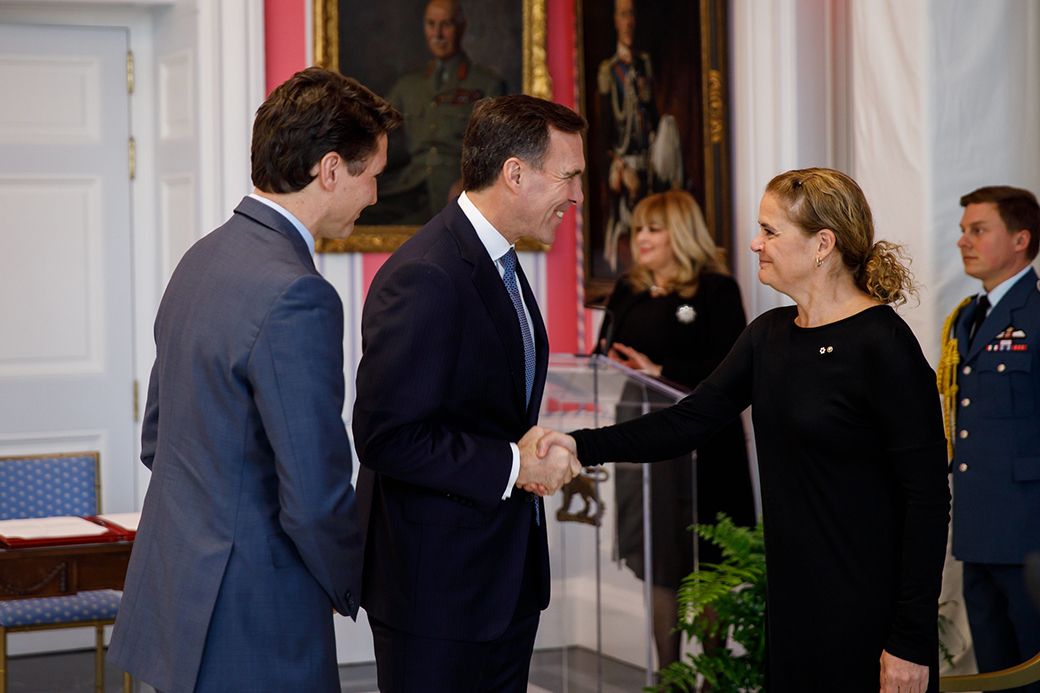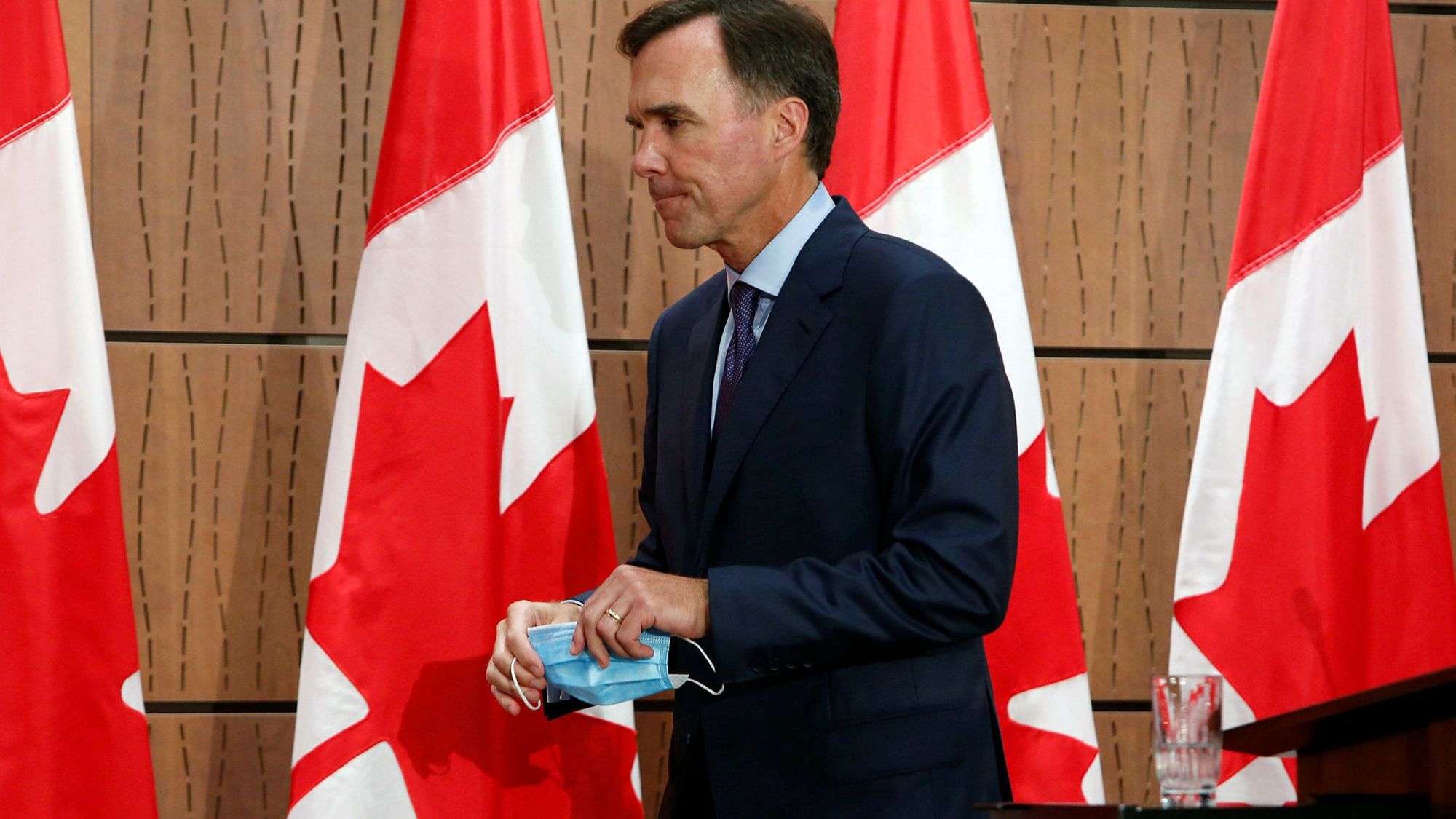Bill Morneau served as Canada’s Minister of Finance from 2015 to 2020 under Prime Minister Justin Trudeau. As Minister of Finance Morneau tabled four budgets and served as Governor at the International Monetary Fund and the World Bank. This January, Mr. Morneau released “Where To From Here: A Path to Canadian Prosperity,” a book reflecting on his five years as Minister of Finance in the Cabinet of Canadian Prime Minister Justin Trudeau. The national bestseller told with both “pride and regret,” candidly reflects on his decision to leave one of the most powerful political posts in the country and outlines his vision for the country’s potential for growth and prosperity.
In your recent book, you wrote that your fellow lawmakers were more concerned with scoring “political points” and a positive public reputation than in creating sound fiscal policy. Is this a symptom of a broader fundamental problem within Canadian policymaking?
I would go broader than Canadian policymaking.
We, in western industrialized countries, are facing a significant change in the speed of the news cycle and in the nature of the dialog that [is communicated] through social media and the regular media. Now if you're a government, dealing with the immediate news cycle it’s very challenging because of this speed of change. That means focusing on the day to day—responding to what's going on—becomes very challenging. Making it an easy [possibility that a government] takes their eye off the ball of long-term policies that would make an important difference.
To your question, I think we need to find a way to institutionalize long-term decision making. That is hard to figure out, but we have figured out difficult things before—look [at when] we figured out how to keep the central bank separate from politicians. I think we need to think about how we build these important long-term policies that can be adopted by people at both ends of the partisan spectrum, so that we are more likely to deal with issues that [in the future] are advantageous.
Turning to the closed door politics discussed in your book, in addressing your reasons for leaving Cabinet, you wrote that during the pandemic your role as Minister of Finance "had deteriorated into serving as something between a figurehead and a rubber stamp.” Has Prime Minister Trudeau now become the de facto Finance Minister?
I was specifically referring to the challenge in COVID. The real challenge of COVID was [figuring] out how to support people, and there was an obvious incentive for governments to make sure that they earn [their constituents’] support and confidence in facing this challenge. So my job, as I saw it, was to make sure [our government] gave the necessary support and tailored it appropriately [to be] tapered off at the right time.
The conflict with [Prime Minister Trudeau] was a difference of opinion on how much that should be tailored, and how quickly it should be tapered off. Without the ability to get to conclusions that I thought were the right one, we [the Prime Minister and I] came to loggerheads. That is the tale of how it came to be [and how] I decided I wasn't ready to continue on as finance minister.
Broadly, I do believe that there has been a greater level of centralization in Canadian politics over the last couple of governments. That means by definition [there is] less authority for ministers, which results in policies that have not taken into account the full range of considerations. To me, that's a challenge. The reason this centralization happens is quite obviously to try to deal with managing the media cycles, but the loss of effective policy making is significant.

Later in the book, you wrote that during the pandemic “calculations and recommendations from the Ministry of Finance were basically disregarded in favor of “winning a popularity contest.” With your first hand experience, is Prime Minister Trudeau a competent manager of the Canadian economic scene or just the political scene?
We have found ourselves in a situation in Canada where we have had two minority governments. There is a situation where there's no broad based support for the Liberal Party or the Conservative Party, [which makes] governing challenging.
So, the political verdict is yes. Three electoral victories [for the Liberals,] but in each case a declining level of support. That was problematic because you don't have enough of a consensus to get policies. That might be the most effective long-term economic policies because you are fighting to maintain your [political] position on a day-to-day basis.
My hope is that we find ourselves in a situation where the next government, or the next iteration of this Liberal government, recognizes that our need for long term economic growth needs to be put at the forefront. The [Trudeau government’s latest] budget puts focus on the energy transition to cleaner sources of energy. That is thematically important. The question will be how do we do that in a way that [unleashes] the vitality of the economy. That means we have to be careful not to create short-term wins, but instead long-term advantages [by gaining] superiority in places where we have a natural opportunity; the mining sector and the agricultural sector are two obvious examples.
Diving deeper into the current political scene, this February, Prime Minister Trudeau referred to you, and both the current and former Governors of the Bank of Canada as I quote “random liberals,” so I have to ask what is the current state of your relationship with the Prime Minister?
I was proud to be a Liberal Minister of Finance.
What you see when somebody [like the Prime Minister] responds to something in the House of Commons is often the back-and-forth of politics. I wouldn't take too much from any particular quote, and say that it’s anything more than somebody responding in the heat of the moment.
I do believe that we made some really important initiatives, and I worked together with Prime Minister Trudeau on those initiatives. The introduction of the Canada child benefit lifted hundreds of thousands of Canadian children out of poverty, and that was an effort that we embarked on together. Another is the expansion of the Canada Pension Plan [which means that] many many more Canadians will be able to retire in dignity. There are real clear examples of policies that we both did together that made a difference.
Politics is never without its troubles, and being an influential member of [the] cabinet doesn't make it any easier. But if you could turn back the clock, would you do it all over again?
I look back on my time in public life, as Minister of Finance, as the best five years of my career, and I would do it over again in a heartbeat.
I think [government] is the way that you can have the biggest and most important impact on your country. In my case, I look back and say we had an important positive impact on so many Canadians. That said, there's a lot more to do [pertaining to the] long term success of our economy.
In that regard, I hope that my example is a positive one to people [showing that] you can move from private life into public life. Of course, you're gonna get bruises, that's the nature of politics, but if you can have an impact, if you can have an enduring impact, then that’s absolutely worth it.
So, I look back on [those years] with positives and no regrets. Are there things that I could have and would have done differently? Of course! We all can look back with 20/20 hindsight, but big picture I am proud of what we achieved.

Now, you have entered the next chapter of your career. You joined the Canadian Imperial Bank of Commerce this fall returning to the private sector. What prompted the decision to rejoin the sector after time in elected office and a stint as a teaching fellow at Yale?
Well, there are a number of things that I've done since being in office. As you mentioned, I was a fellow at the Jackson School at Yale University [where I] had the great opportunity to both teach and interact with students, which I really enjoyed. [In October,] I joined the CIBC Board of Directors, both because I hope I can have an impact on the stewardship of that organization, which is one of the important Canadian financial institutions, and [also it] provides me with a continuing ability to see big economic trends that are impacting our country
[There are] some other things that I'm focused on. I took the initiative around publishing a book, as it was my view that it's important for people who have had the privilege of being in public life to give back. I wanted to give people a sense of both what it means to be in that role, but, also, my sense of what's important that we focus on.
I am hopefully looking towards other initiatives that will be focused on economic growth, and being an advocate for [Canada] to take actions that will positively impact and improve our potential outcomes. So, watch for more things.
Now, my final question, I have to ask, have we seen the last of Bill Morneau in Canadian politics?
Well, for now, I'm very focused on being in the private sector and [on] trying to have an impact there. I hope that, over the longer term, I will be able to engage with people who take on leadership roles and help them in that regard.
I don't think that in the immediate future [that] I would think about getting back into public life as an elected official, but I do hope to have an impact over the longer term. I think that the kinds of experiences that I have had, both in the private sector and the public sector, give me a unique ability to see the challenges of working towards the collective goal of better opportunities for all Canadians.
Morneau also discussed Canada's current economic situation in an additional interview titled "Understanding Canada’s Fiscal Outlook with Bill Morneau." Mete spoke with Morneau in March, 2023. This interview has been lightly edited for length and clarity.





